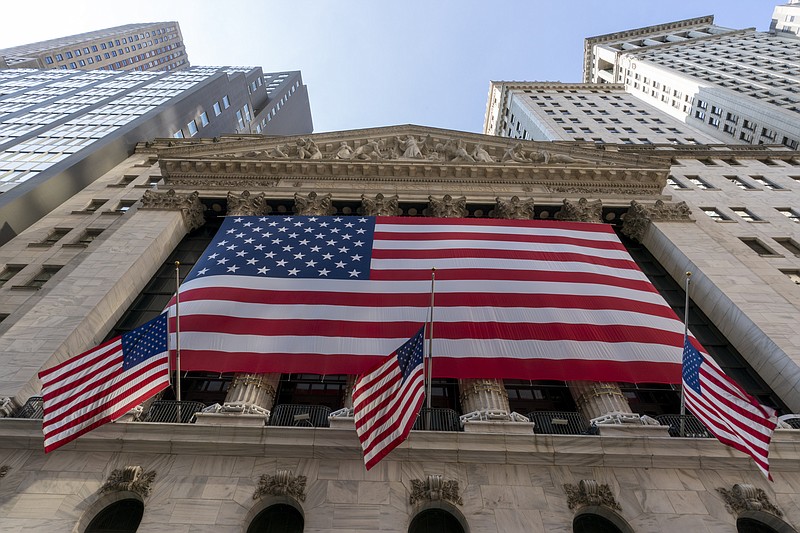Stocks notched broad gains Monday as investors looked ahead to Election Day and the potential for a turbulent stretch for markets.
The S&P 500 climbed 1.2%, recouping some of its losses from a sharp sell-off last week, as more companies reported stronger profits for the summer than Wall Street feared and reports on manufacturing came in better than expected.
The S&P 500 rose 40.28 to 3,310.24. The Dow Jones Industrial Average gained 423.45 points, or 1.6%, to 26,925.05. The Nasdaq composite picked up 46.02 points, or 0.4%, to 10,957.61. The index had been down 0.7% in the day's trading.
Small-company stocks fared better than the broader market. The Russell 2000 small-caps index rose 30.11 points, or 2%, to 1,568.59.
Health care, industrial and financial companies drove much of the rally, which followed gains for European and Asian stocks on their own better-than-expected economic data.
Caution, though, was continuing to hang over markets as the pandemic raises worries that customers will stay away from businesses and pushes more European governments to bring back restrictions. Uncertainty about today's U.S. election is also weighing on markets, and Treasury yields were mixed.
"People are probably more than willing to hold off to see what happens tomorrow night," David Trainer, chief executive officer of investment research firm New Constructs, said Monday.
It's an incredibly busy week for markets, with the Federal Reserve announcing its latest decision on interest rates Thursday, the U.S. Labor Department releasing its market-moving monthly jobs report Friday and roughly 130 companies in the S&P 500 scheduled to report their results for the summer through the week.
Blaring above them all is Election Day. Markets have veered sharply in recent weeks as investors deal with uncertainty about who will control Washington.
Many professional investors say they plan to hold steady through whatever volatility the election creates. That's because history shows politics don't have a very strong correlation with market returns over the longer term.
The feared scenario for investors is a contested election, where it could take weeks for a winner of the White House to emerge.
[CORONAVIRUS: Click here for our complete coverage » arkansasonline.com/coronavirus]
Which party gets control of the Senate may be just as important as the presidency. If Democrats can gain complete control of Washington, many investors expect them to deliver a big dose of support for the economy. That plus "more predictable trade policy" could offset the higher tax rates and tighter regulations likely to come out of a Democratic-controlled Washington, says the BlackRock Investment Institute.
Investors and economists alike say the economy needs another shot of stimulus, particularly when coronavirus counts are accelerating at troubling rates. The toughest restrictions on daily life and businesses have not returned yet. But even if they don't, the worry is that fear about the virus will keep customers away from businesses by itself.
Such worries helped drive the S&P 500 to a 5.6% loss last week. That was its worst since March, when worries about the first wave of the pandemic were sending stocks around the world into free fall.
Nielsen Holdings rose 3.8% and Clorox gained 4.2% after each reported better results than analysts expected. Companies in the S&P 500 are now on track to a decline of slightly less than 10% for the summer from a year earlier.
The yield on the 10-year Treasury fell to 0.85% from 0.88% late Friday.
Information for this article was contributed by Yuri Kageyama of The Associated Press.
